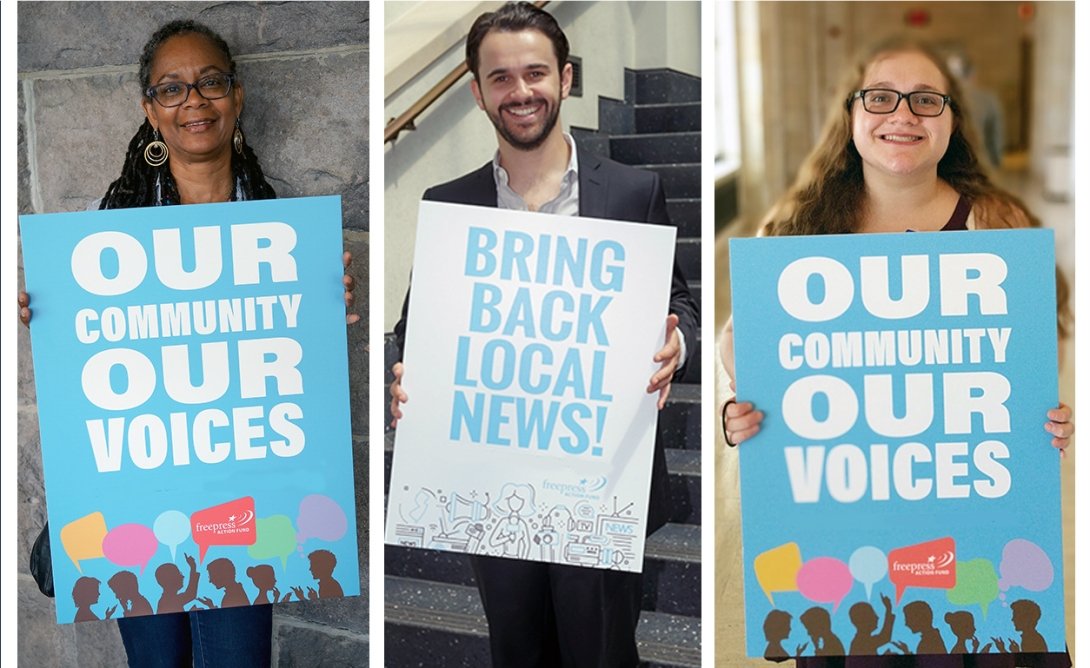The Big Push to Pass the Civic Info Bill

Timothy Karr
Statehouse and gubernatorial elections. A competition to land a retail and tech giant in Newark. Changes in federal tax and health-care laws trickling down to the state level. More funding for the opioid crisis.
Local news has had a lot to cover in New Jersey these past few months, and despite continuing declines in the newsroom workforce, many journalists here are delivering important news with impact daily, and launching innovative collaborative projects to better connect with communities.
We need stories about New Jersey’s communities more than ever. That’s why Free Press Action Fund launched the campaign earlier this year to create the Civic Information Consortium, a proposed collaboration between journalists, organizers, tech innovators and higher-education institutions designed to transform how our communities stay informed, provide impactful reporting, and amplify the voices of people of color and other marginalized communities.
How the consortium would work
The consortium would be a nonprofit that awards grants to media and community groups to test out ways to give New Jersey residents the local news they need — information on how their tax dollars are spent, how their local schools and economy are doing, what’s going on in local arts and culture, what road projects might affect their daily commute, how national trends in public safety, health care and social justice are filtering down to our communities.
With help from major higher-education institutions in New Jersey — The College of New Jersey, Montclair State University, the New Jersey Institute of Technology, Rowan University and Rutgers University — the consortium would be a national model when it comes to innovative media that serves the public.
When this campaign started, few people outside journalism circles were talking about how New Jersey’s communities would stay informed in an era of runaway media consolidation. But support for the Civic Info Bill has been tremendous, gaining support from 14 lawmakers in the legislature and thousands of residents across the state.
Now, as we approach the legislature’s lame-duck session — the period between this November’s state elections and the inauguration of a new governor next January — lawmakers have the opportunity to ensure their constituents can stay up to date on what’s happening in their communities and around the state.
Initial funding for the consortium — $20 million this year — would come from the $332 million in revenue New Jersey received from the sale of the state’s public-television licenses. It’s a once-in-a-lifetime opportunity to strengthen and transform local media for decades to come.
What would that money go toward? Earlier this year we held seven community forums to solicit the public’s input on what kinds of projects the fund should support. Hundreds of people attended and offered many, many great ideas.
Projects the consortium could fund
- Squarespace for New Jersey: Create a set of user-friendly, attractive templates for town, county and school-district websites, built to convey the kinds of essential information residents crave.
- Media literacy: Create curricula and workshops to help people of all ages, from middle schoolers to adults, become discerning media users who are able to identify fake news.
- Civic Education Institutes: Develop materials and a format for local communities to establish institutes where residents could learn how local governments and school systems really work, and how to engage with them effectively and appropriately.
- AmeriCorps for journalism: Give fellowships to promising young journalists to report on undercovered communities or issues and work with established media outlets that would provide mentoring and training.
- Digital public radio for New Jersey: Return quality audio storytelling to New Jersey by offering seed money for locally produced podcasts.
- Local data apps: Create a digital-app template that a community or county could use to provide mobile access to important government data, e.g., restaurant-inspection records, social-service contacts, environmental data, roadwork and traffic data, etc.
What’s next?
None of this is a done deal. Lawmakers will have a lot of issues to consider during this short period, and the bill’s chances depend on how much pressure lawmakers feel from the public.
It will take people from all walks of life, from all parts of the state, telling their lawmakers that they think improving local news and community information is crucial — and that it should take its rightful place at the table alongside other priorities of a forward-looking state.